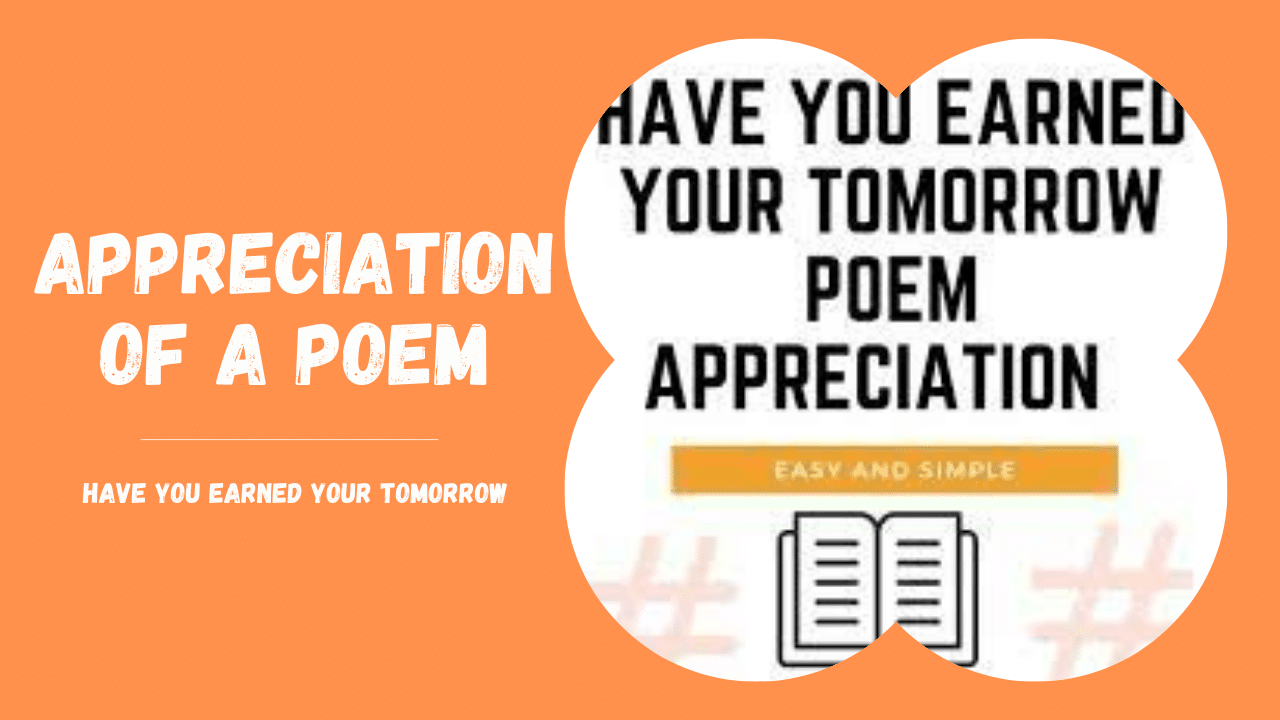Tomorrow’s Promise A Reflection on Achievement and Its Worth
Appreciation of have you Earned your Tomorrow, “Have You Earned Your Tomorrow” is a pivotal poem included in the Maharashtra State Board curriculum for the HSC exam. It serves as a cornerstone for students delving into the complexities of poetic expression and philosophical inquiry. Understanding and appreciating this poem is essential for navigating the activities and assessments associated with it.
If you’re seeking guidance on how to approach the appreciation and explanation of this profound piece of literature, you’ve landed in the right place. Here, you’ll find comprehensive insights and official information to aid you in dissecting the nuances of “Have You Earned Your Tomorrow” within the context of your 12th-grade English studies.
An Overview of ‘Have You Earned Your Tomorrow’ Seeking Tomorrow’s Worth
“Have You Earned Your Tomorrow” penned by Edgar Guest serves as a motivational beacon, urging readers to reflect deeply on their actions and choices. The poem acts as a mirror, prompting individuals to evaluate whether their conduct aligns with the virtues necessary for a promising future. It challenges them to assess their diligence, kindness, and impact on the world. Emphasizing integrity, sincerity, and purpose, the poem underscores these as the pillars for a meaningful existence. Ultimately, “Have You Earned Your Tomorrow” resonates as a call to pursue excellence and make each moment count towards a brighter horizon.
Exploring ‘Have You Earned Your Tomorrow’ Appreciation and Analysis for 12th Grade English
- About the Poem: “Have You Earned Your Tomorrow” serves as an instructive and inspiring piece, imparting moral lessons about kindness and behavior. Through self-reflective questions, it motivates readers to cultivate goodness for a promising future.
- About the Poet: Penned by Edgar Guest, an American poet renowned as the “people’s poet,” known for his optimistic and inspirational portrayal of everyday life.
- About the Title: The title, “Have You Earned Your Tomorrow,” poses a binary question hinting at moral conduct, guiding readers towards virtuous behavior.
- Theme of the Poem: The poem revolves around the consequences of one’s actions, emphasizing the need for conscientious behavior and thoughtful planning for a better future.
- Poetic Style / Language / Poetic Devices: Guest employs a simple yet optimistic tone, utilizing poetic devices like alliteration, personification, metaphor, and interrogation. The poem consists of four stanzas with a rhyme scheme of aa, bb, cc, dd, ee, ff, aa.
- Special Features: A notable feature is the recurring reference to an abstract image of God, adding impact to each question posed. The poem culminates with the advice to consider one’s actions for a brighter tomorrow.
- Message / Moral in the Poem: The poem advocates for making others happy through one’s behavior and emphasizes the importance of honest work to earn praise from others.
- Conclusion / Opinion: Personally moved by the poem’s message, understanding the correlation between today’s efforts and tomorrow’s rewards. It reinforces the principle that serving others is akin to serving a higher purpose, leaving a lasting impression on life’s philosophy.
